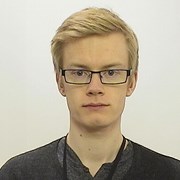About the Summer School
International Summer School on LLM-based Agents for Software Engineering
The First International Summer School on LLM-based Agents for Software Engineering aims to cover several aspects related to the use of LLM-based agents for software development. It serves as a meeting point for learning and discussing the latest trends related to the application of Artificial Intelligence techniques in software development.
The school features a panel of high-level speakers with extensive experience in the research lines pursued within the program.
Key Topics:
Agents for SE Tasks
Requirements, coding, testing, deployment, and other software engineering activities augmented by LLM-based agents.
Evaluation & Benchmarking
Monitoring and evaluation frameworks for agentic systems in software engineering contexts.
Hybrid Teams
Human-agent collaboration methodologies and frameworks for effective software development.
Chairs:

Roberto Rodríguez Echeverría
Associate Professor, University of Extremadura
Roberto Rodríguez-Echeverría, PhD, is an Associate Professor of Computer Languages and Systems Department at the University of Extremadura (Spain). He has published more than 60 scientific publications in journals and international conferences. He has also been involved in numerous competitive projects and contracts with institutions and industry. His research interests include Artificial Intelligence (AI), AI in Healthcare and Model-Driven Software Development, among others. Recently, he has been heavily involved in launching a new spin-off, MetrikaMedia, which provides a state-of-the-art SaaS solution for measuring media contents.

José María Conejero
Associate Professor, University of Extremadura
José María Conejero is an Associate Professor in the Department of Computer Languages and Systems Department at the University of Extremadura (Spain). In 2010, he obtained his PhD in Computer Engineering. He has co-authored over 50 articles in prestigious international journals and conferences and has served as a reviewer or program committee member for many other international journals and conferences. His research interests include Artificial Intelligence, Big Data, and Model-Driven Software Development, among others. He has also been involved in numerous competitive research projects, as well as in contracts with both public and private entities. Most recently, he has co-founded MetrikaMedia, a startup and spin-off of the University of Extremadura.
i3Lab by Quercus Software Engineering Group and INTIA (Instituto Universitario de Tecnologías Informáticas Aplicadas), Universidad de Extremadura.
Agenda
(Provisional - Subject to updates)
| Time | Monday, 1st Sept | Tuesday, 2nd Sept | Wednesday, 3rd Sept |
|---|---|---|---|
| 09:30 | Registration | Multi-agents for code generation. Jie Zhang | AI in Enterprise Architecture. Olivier Perard |
| 10:00 | School Opening | ||
| 10:30 | AgentWare in Software Engineering: A
Taxonomy of LLM-Based Multi-Agent Systems Davide Di Ruscio |
AI and Software Development: An Industry
Paradigm Shift Mario Corchero David Naranjo |
Safe AI in Education: From security and ethics principles to an open-source project — LAMB Project Marc Alier |
| 11:30 | Coffee break | Coffee break | Coffee break |
| 12:00 | Generative AI models running in your own infrastructure Jesús M. González Barahona | From workflow-based to fully-agentic applications: smolagents and LangGraph. Antonio García Domínguez | Software Maintenance with Agentic
LLMs Merve Astekin |
| 13:00 | Lunch | Lunch | Lunch |
| 14:30 | Workshop 1. Test-driven development with the help of generative AI Jesús M. González Barahona & Giovanni Rosa | Workshop 2. Development of agentic applications with human-in-the-loop via LangGraph. Antonio García Domínguez | Workshop 3. Multi-Agent LLMs and Knowledge Graphs for Monitoring and Sustaining Software Systems Adela Nedisan Videsjorden & Simeon Tverdal |
| 17:30 | |||
| 19:30 | Guided visit to "Museo Helga de Alvear" — 19:30. Meeting point: door of Museo Helga de Alvear. | ||
| 20:00 | Guided visit to the monumental city of Cáceres — 20:00. Meeting point: main door of Cáceres City Hall. | ||
| 21:30 | Social Dinner — 21:30 at Hotel Don Manuel. Meeting point: main door of Hotel Don Manuel. |
Speakers

Davide Di Ruscio
Università degli Studi dell'Aquila
Davide Di Ruscio is a Full Professor at the University of L'Aquila, specializing in Software and Model-Driven Engineering. He’s an active researcher, editor, and project lead in areas like domain-specific languages, model evolution, and software recommendation systems.

Jie Zhang
King's College London, UK
Dr. Jie M. Zhang is a lecturer of computer science at King’s College London. Her main research interests are the trustworthiness of software engineering, AI, and LLMs.

Antonio García Domínguez
University of York, UK
Dr. Antonio Garcia-Dominguez is a Senior Lecturer at the University of York, specializing in model-driven engineering and software testing, and leads AI agent work in the EU MOSAICO project.

Jesús M. González Barahona
Universidad Rey Juan Carlos, Spain
Professor at Universidad Rey Juan Carlos researching software development communities, with focus on quantitative analysis, data visualization in extended reality, and AI integration in software engineering processes. Co-founder of Bitergia, the software development analytics company.

Giovanni Rosa
Postdoctoral Researcher, URJC
Giovanni Rosa is a Postdoctoral Researcher at URJC, focusing in GenAI for Code Generation and Software Engineering. His research interests include mining software repositories, software quality, maintenance and evolution, and empirical software engineering.

Marc Alier
Associate Professor, Polytechnic University of Catalonia (UPC)
Marc Alier is an Associate Professor at the Polytechnic
University of Catalonia (UPC) with over two decades of experience in teaching, research,
and educational management. He holds a degree in computer science and a Ph.D. in
Sustainability. Marc has dedicated his career to exploring the intersections of
e-learning, information systems, and generative AI in education. He is a prominent
contributor to the Moodle community, shaping foundational tools such as the Wiki module
and IMS LTI consumer, which support interactive and accessible learning environments. He
is the software architect in the Open Source project Learning Assistant Manager and
Builder (LAMB).
Marc also brings a wealth of management experience. He served as
Director of the Institute of Sciences of Education at UPC and was later appointed Deputy
Director of Educational Innovation. He now serves as the academic director of UPC’s
Ph.D. program in Education in Engineering Sciences and Technology. Through these roles,
he has driven forward initiatives to improve teaching practices, technology integration,
and curriculum development across multiple programs.
Marc’s research contributions
include over 180 academic publications on topics from e-learning to AI ethics, having
authored the Safe AI in Education Manifesto. For a full list of his publications, please
visit UPC Research Portfolio, ORCID, Google Scholar, and Publons profile.

Merve Astekin
SINTEF Digital, Norway
Merve Astekin is a Research Scientist at SINTEF Digital, focusing on sustainable AI and energy-efficient software systems, with recent work on LLMs for edge devices and intelligent agentic methods.

Adela Nedisan Videsjorden
SINTEF Digital, Norway
Researcher in sustainable AI, edge AI, and digital twins, with a strong background in NLP and deep learning.

Olivier Perard
Field CTO – EMEA, Oracle EMEA
Computer Engineer with 30+ years experience across utilities, telecom, banking, and insurance sectors. Expert in AI services, behavioral economics, sentiment analysis, and predictive models implementation for international companies and public administration.

Simeon Tverdal
SINTEF Digital, Norway
Researcher at SINTEF Digital focusing on applied AI, cybersecurity, and risk management, with interests in machine learning and computer networking.

Mario Corchero
Bloomberg
Mario Corchero is a seasoned software engineer and technical leader with a strong focus on developer experience, automation, and the integration of AI into software development workflows. With a solid foundation in Python and C++, he has contributed to various open-source projects and has been instrumental in building scalable infrastructure and tools that enhance developer productivity.
Talk: AI and Software Development: An Industry Paradigm Shift

David Naranjo
Software Engineer, Microsoft
David Naranjo Barco is a Software Engineer at Microsoft working on the modernization of Bing Maps and Search experiences. He previously worked at Glovo and Skyscanner, leading large-scale migrations and developing high-traffic systems. He co-founded a platform with 600k+ monthly users and works across frontend, backend, and system design with emphasis on usability, performance, and accessibility.
Target Audience
This summer school is designed for professionals and students passionate about the intersection of AI and software engineering
PhD Students
Primarily those in early stages, but also others interested in applying these techniques to their research.
University Professors
Educators seeking to integrate the school's topics into their courses or curricula.
Industry Professionals
Software development practitioners aiming to enhance productivity through new AI techniques.
Prerequisites
Basic understanding of software engineering concepts and familiarity with programming languages. No prior AI experience required.
Certificate
All participants will receive a certificate of completion.
Venue & Dates
Location
INTIA (Instituto Universitario de Tecnologías Informáticas Aplicadas)
Edificio Contenedor de Institutos Universitarios,
Universidad de Extremadura,
Cáceres, 10004, Spain
Dates
September 1-3, 2025
3 intensive days of learning and networkingFormat
In-Person Event
Face-to-face interaction with speakers and peersCampus Map
About Cáceres
Discover Cáceres, a magnificent UNESCO World Heritage city founded in 25 BC that seamlessly blends Roman, Islamic, Gothic and Renaissance influences. Its perfectly preserved medieval quarter features imposing city walls, noble houses, and towers that transport visitors back through centuries of Spanish history.
Beyond its rich historical legacy, modern Cáceres thrives as a cultural center, home to the internationally acclaimed Helga de Alvear Museum of Contemporary Art. The city's exceptional culinary scene is crowned by Atrio, a three-Michelin-starred restaurant nestled within the ancient walls, offering a perfect fusion of tradition and innovation.
Wandering through Cáceres' cobblestone streets reveals hidden plazas, palatial homes with distinctive coats of arms, and impressive Gothic churches. Surrounded by the enchanting Extremadura landscape, the city proudly preserves its heritage while embracing its future as a candidate for European Capital of Culture 2031.
Click on any image to enlarge it
Accommodation
Cáceres offers a wide range of accommodation options to suit every budget and preference. Special rates may be available for Summer School attendees at partner hotels.
Partner Hotels
Gran Hotel Don Manuel
Premium option with special UEx rates, less than 3 km from venue
University Residences
As the school is outside the main academic term, university residences might have availability with low occupancy expected.










Social Events
Daily Lunches
Lunch will be provided at the venue and is included.
Guided City Tour
A guided tour of the Monumental City of Cáceres (UNESCO World Heritage site).
Social Dinner
Join us for a social dinner.